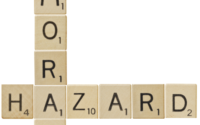Investors Need To Prepare For Era Of ‘Big Government,’ BofA Says
Investors need to prepare their portfolios for mega economic and geopolitical trends that are sweeping the world and creating new market conditions that will make the next five much less certain than the last decade was, a Bank of America executive said.
In particular, investors need to closely examine how much risk their portfolios are exposed to, Joe Quinlan, head of market strategy for Bank of America Private Bank, said in an interview.
“The next five years are not going to be as easy for investors as the last decade, although there still will be ways to find good returns,” Quinlan said. The trends that will impact portfolios include the fact that the era of big government is back; the era of cheap money is over; and the ‘peace dividend’ has been spent.
“These trends augur well for more active management of portfolios,” Quinlan added.
Governments on all levels are going to be more active, he said. The era of less government was “vaporized by the pandemic, rising U.S.-Sino tensions, and the war in the heart of Europe,” Quinlan said in a market strategy report co-authored with Lauren Sanfillipo, director and senior investment strategist for Bank of America Private Bank.
Big government will “create market distortions that ultimately boost costs on the economy, reduce corporate earnings, and trigger trade tensions and retaliation from our trading partners,” the two said in the market strategy report, “Yes, It’s Different This Time: Three Tectonic Shifts to Monitor.
Risks will be created by the higher levels of government debt that will be piled up. At the same time, the U.S. government is freezing Russian financial assets; capping prices on Russian energy exports; placing an embargo on semiconductors to China, and urging other countries to do the same. “Economic nationalism is not just on the rise in the U.S. but around the world,” the report said.
Because of these actions, investors should put some of their money in hard assets, such as minerals, metals, and agriculture commodities, or commodities that will become scarce because of government protectionism, according to the report. Investors need to have some precious metals, Quinlan said.
To guard against risk, investors should look to small and mid-cap companies now “because large companies can get caught in international crosshairs,” he said. “There is a premium on natural resources now, but these cannot be captured or used without commodities. We are bullish on energy, even oil and nuclear.”
Cheap money also has fallen by the wayside, replaced by capital that costs more. “Investors will need to put some funds in both cash and credit,” he said.
Government debt is rising across the globe, as is corporate debt and household debt. The three types of debt combined increased three-fold between 2000 and 2022, the report said. The higher level of debt being accumulated at the same time that interest rates are going up makes easy money even scarcer.
“Investors need to ask themselves if their portfolios are ready for the higher cost of capital,” Quinlan said.
“It’s a new world because in the face of structurally higher wage costs, declining global labor market participation rates, rising costs associated with reconstructing supply chains, and tight global energy and minerals supplies, the new normal for global inflation is most likely above 2%,” the report said.
“The cheap credit of the past was rocket fuel for global financial markets, stoking gains not only in equities but also high-yield bonds, real estate and more risky, speculative investments like special purpose acquisition companies and crypto currencies,” the report noted. It is important for investors to understand the effects of easy money on asset prices and prepare for a regime change in asset pricing that will favor value over growth.
Investors also need to realize the money provided by the relative quiet that existed between countries, known as the peace dividend, already has been spent and cannot bail out markets any more, the report said. When the geopolitical scene is quiet, public funds can be funneled into nonmilitary programs.
But “Russia’s invasion of Ukraine and China’s growing military might have upended the global calculation, a seismic shift that should not be lost on investors,” Bank of America said in the report. “The favorable economic and budgetary effects of lower global military spending are behind us. In an era more fraught with geopolitical risks, we remain constructive on large-cap U.S. defense contractors and continue to favor cybersecurity leaders. While global equities have gained support early in the year from an improving macro environment, investors should be mindful of larger, more structural forces that are at play.”
After the pandemic subsided, “everything seemed to come roaring back, but we are not out of the economic turmoil yet,” Quinlan said. “Investors do not have to give up returns going forward, but they need to be aware of the mega trends that are sweeping the world and reassess their portfolios in light of those changes.”
[ad_2]
Source link


